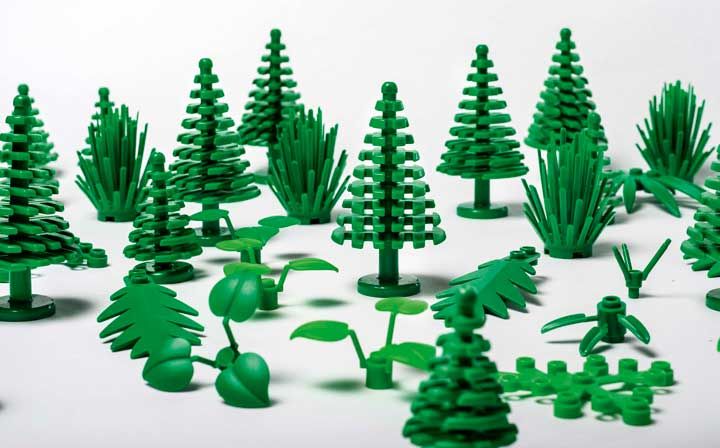Lego plans new sustainable pieces to go on sale this year
Fans of Lego can rest assured that when they come to use tree, leaf or bush pieces they will now more closely resemble the real thing.

Fans of Lego can rest assured that when they come to use tree, leaf or bush pieces they will now more closely resemble the real thing.
This is because the Danish toymaker is introducing new plant-based material to be used on its botanical elements, starting from this year.
The new sustainable elements are made out of a “plant-based plastic” called polyethylene, sourced from sugar-cane, which the company states is “technically identical” to the current products made from conventional plastic.
Tim Brooks, the Lego Group’s head of environmental responsibility explains that “we want to make a positive impact on the world around us, and are working hard to make great play products for children using sustainable materials”.
However, the new polyethylene elements will only make up “1-2 percent” of the total amount of conventional plastic the company currently produces. Mr Brooks added that the move was “a great first step in our ambitious commitment of making all Lego bricks using sustainable materials”.
Lego has been working for years to incorporate sustainability into its business practices. Along with sourcing 100 percent of its energy needs from renewables, it has also set a 2030 target to reach zero waste across all its operations.
The group has also partnered with WWF to ensure the raw material in its products are sustainably sourced. WWF has started a Bioplastic Feedstock Alliance, which works to this end.
“It is essential that companies in each industry find ways to responsibly source their product materials and help ensure a future where people, nature, and the economy thrive,” said Alix Grabowski, a senior program officer at WWF.
“The Lego Group’s decision to pursue sustainably sourced bio-based plastics represents an incredible opportunity to reduce dependence on finite resources, and their work with the Bioplastic Feedstock Alliance will allow them to connect with other companies to continue to think creatively about sustainability”, she added.
Photo Credit: Lego




_400_250_80_s_c1.jpg)

